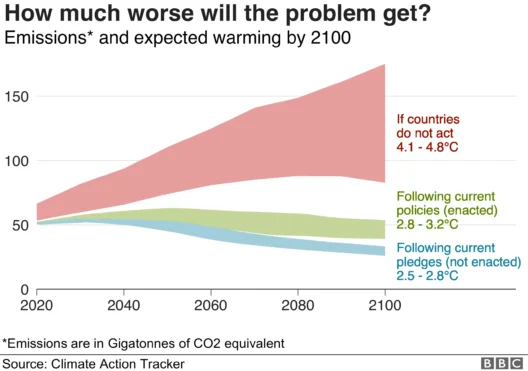Global warming has emerged as one of the most pressing issues of our time, and its ramifications extend beyond mere temperature increases. The growing body of evidence indicates profound shifts in weather patterns, ecosystem dynamics, and human health. However, the question remains: have we made any tangible progress in reversing the tide of global warming? Analyzing this query requires a comprehensive examination of recent climate policies, technological advancements, and grassroots activism.
To grasp the current status of our battle against global warming, it is imperative to first understand the scale of the crisis. The Intergovernmental Panel on Climate Change (IPCC) has consistently issued dire warnings about the accelerating pace of climate change. Global temperatures have risen by approximately 1.1°C since the pre-industrial era. This seemingly modest increase has already manifested in extreme weather events such as hurricanes, droughts, and wildfires, leading to widespread ecological and economic instability.
Despite the daunting statistics, there is a flicker of hope in the realm of international agreements aimed at mitigating climate change. The Paris Agreement, adopted in 2015, represented a watershed moment in global climate diplomacy. Countries around the world pledged to limit their greenhouse gas emissions to well below 2°C of warming, with an aspirational target of 1.5°C. This commitment has catalyzed a plethora of national and local climate action plans, fostering greater accountability and ambition among signatory nations.
Yet, achievements under the Paris Agreement have been mixed. Many nations have lagged in their emission reduction targets, and some, notably major fossil fuel producers, continue to prioritize short-term economic gains over environmental sustainability. This dichotomy raises critical questions about our collective resolve in confronting climate change. On the flip side, various regions are making commendable strides by investing in renewable energy sources, implementing stricter emissions regulations, and promoting energy efficiency.
In recent years, there has been a significant uptick in the adoption of renewable energy technologies. Solar and wind energy have transitioned from niche markets to dominant players in the electricity generation landscape. Rapid advancements in solar photovoltaic (PV) technology, coupled with economies of scale, have dramatically reduced costs. This trend has given rise to a profound shift in how energy is produced and consumed. Consequently, an increasing number of households and businesses are choosing clean energy options, driving down fossil fuel dependency.
Moreover, the electric vehicle (EV) market is experiencing unprecedented growth, heralding a new era in transportation. With the widespread availability of charging infrastructure and the introduction of government incentives, consumers are beginning to embrace electric mobility. Not only do EVs produce zero tailpipe emissions, but they also signal a shift towards sustainable urban planning and public transit systems. These advancements pave the way for comprehensive decarbonization of one of the largest sources of greenhouse gases—transportation.
Nevertheless, technological innovations alone cannot cure the ills of climate change. The interconnection between social equity and environmental justice is becoming increasingly evident. Communities disproportionately affected by environmental degradation often lack the resources to adapt to its consequences. Grassroots movements, therefore, play a crucial role in amplifying marginalized voices and advocating for climate policies that prioritize equity. Initiatives such as the Green New Deal in the United States seek to synergize climate action with job creation, ensuring a just transition toward a sustainable economy.
In addition to legislative measures and technological breakthroughs, public awareness and education about climate change have gained prominence. Individuals are more informed than ever about their carbon footprints and the urgency of action. The rise of social media platforms has facilitated the dissemination of climate science, empowering citizens to engage in advocacy and demand accountability from their leaders. This active participation enhances societal pressure to adopt sustainable practices and reduces reliance on fossil fuels.
However, despite progress, discontent lurks beneath the surface. The climate crisis has created a sense of urgency, yet there exists a pervasive feeling of complacency in certain quarters. Many individuals and organizations continue to debate the extent of climate change and its implications, often downplaying the consensus among scientists. This division threatens to dilute collective action and stall progress. As we confront this pivotal moment, fostering a sense of urgency while maintaining constructive dialogue is crucial.
Another factor complicating the trajectory of global warming is the interplay of natural processes and human-induced activities. Feedback mechanisms, such as thawing permafrost releasing methane, could accelerate warming beyond anticipated thresholds. Simultaneously, efforts to reforest and restore ecosystems provide avenues for enhancing carbon sequestration. These nature-based solutions, while offering dual benefits of biodiversity conservation and climate mitigation, must be integrated with technological interventions to comprehensively address climate change.
In conclusion, while there are glimmers of progress in reversing global warming, the journey is far from complete. International commitments, technological advancements, and grassroots activism have laid the foundation for substantial change. However, it is imperative to transcend complacency and elevate our collective ambition to tackle this existential challenge. The future trajectory of global warming hinges not only on the actions of governments and corporations but also on the willingness of individuals to advocate for sustainable practices in their everyday lives. Amid the daunting challenges ahead, an unwavering commitment to a sustainable, equitable future can foster a shift in perspective—a beacon of hope in our quest to reverse global warming.






